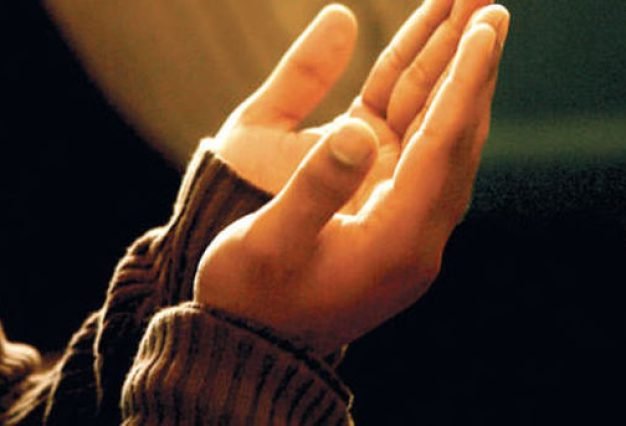Answered by Shaykh Yūsuf Badāt
Question:
Zaid bought a property. Lawyers advise him to transfer the money into a Nedbank trust interest bearing account which he does. He earns interest after the paperwork is finalized. Can Zaid assist his cousin who is also using a Nedbank account by paying the interest that has accumulated on his cousin’s credit card?
Answer:
بِسْمِ اللهِ الرَّحْمنِ الرَّحِيْم
In the name of Allāh, Most Gracious, Most Merciful.
Jazāk Allāh Khayr/ Thank you for contacting Mathabah Institute.
In general, it is prohibited in Islam to utilize accumulated ribā (interest/ usury) for personal benefit or to pay off a financial obligation. In the described scenario of interest accumulated from a specific named bank and to pay the credit card of the same bank, on behalf of a cousin who owns that credit card, it is only permissible if the cousin is poor and a recipient of zakāh, otherwise it is islamicaly unlawful.
It should be noted that such accumulated ribā must be given to the poor in charity, with no intent of rewards. – (See: Rad Al-Muḥtār, Vol 5, Page 235, Dār Al-Fikr)
“Allāh has permitted trade and has forbidden interest.” – (Qur’ān 2:275)
“Cooperate in righteousness and piety, but do not cooperate in sin and transgression. Be mindful of Allāh.” – (Qur’ān 5:2)
“Allāh’s Messenger (peace and blessings be upon him) cursed the accepter of interest and its payer, and one who records it, and the two witnesses [of the ribā transaction], and he said, “They are all equal [in sin].” – (Ṣaḥīḥ Muslim 1598)
There is a report that indicates Abū Bakr (may Allāh be pleased with him) made a two-way bet, prior to the prohibition of gambling with a disbeliever. The wealth resulting from winning this bet was given to Abū Bakr (may Allāh be pleased with him) after the prohibition of gambling. Thus, he brought it in the presence of the Prophet (peace and blessings upon him) who instructed, “This is prohibited. Give it in charity [to the poor].” – (See: Iḥyā Al-‘Ulūm Al-Dīn, Vol 5, Page 131, Dār Al-Ma’arifah)
Only Allāh knows best
اكْتَسَبَ حَرَامًا إلَخْ تَوْضِيحُ الْمَسْأَلَةِ مَا فِي التَّتَارْخَانِيَّة حَيْثُ قَالَ رَجُلٌ اكْتَسَبَ مَالًا مِنْ حَرَامٍ ثُمَّ اشْتَرَى فَهَذَا عَلَى خَمْسَةِ أَوْجُهٍ أَمَّا إنْ دَفَعَ تِلْكَ الدَّرَاهِمَ إلَى الْبَائِعِ أَوَّلًا ثُمَّ اشْتَرَى مِنْهُ بِهَا أَوْ اشْتَرَى قَبْلَ الدَّفْعِ بِهَا وَدَفَعَهَا أَوْ اشْتَرَى قَبْلَ الدَّفْعِ بِهَا وَدَفَعَ غَيْرَهَا أَوْ اشْتَرَى مُطْلَقًا وَدَفَعَ تِلْكَ الدَّرَاهِمَ أَوْ اشْتَرَى بِدَرَاهِمَ أُخَرَ وَدَفَعَ تِلْكَ الدَّرَاهِمَ. قَالَ أَبُو نَصْرٍ: يَطِيبُ لَهُ وَلَا يَجِبُ عَلَيْهِ أَنْ يَتَصَدَّقَ إلَّا فِي الْوَجْهِ الْأَوَّلِ، وَإِلَيْهِ ذَهَبَ الْفَقِيهُ أَبُو اللَّيْثِ، لَكِنْ هَذَا خِلَافُ ظَاهِرِ الرِّوَايَةِ فَإِنَّهُ نَصَّ فِي الْجَامِعِ الصَّغِيرِ إذَا غَصَبَ أَلْفًا فَاشْتَرَى بِهَا جَارِيَةً وَبَاعَهَا بِأَلْفَيْنِ تَصَدَّقَ بِالرِّبْحِ وَقَالَ الْكَرْخِيُّ فِي الْوَجْهِ الْأَوَّلِ وَالثَّانِي لَا يَطِيبُ وَفِي الثَّلَاثِ الْأَخِيرَةِ يَطِيبُ، وَقَالَ أَبُو بَكْرٍ لَا يَطِيبُ فِي الْكُلِّ لَكِنْ الْفَتْوَى الْآنَ عَلَى قَوْلِ الْكَرْخِيِّ دَفْعًا لِلْحَرَجِ عَنْ النَّاسِ اهـ. وَفِي الْوَلْوَالِجيَّةِ وَقَالَ بَعْضُهُمْ لَا يَطِيبُ فِي الْوُجُوهِ كُلِّهَا وَهُوَ الْمُخْتَارُ – كتاب الدر المختار وحاشية ابن عابدين ج٥/ ص٢٣٥ دار الفكر
وَأَحَلَّ اللَّهُ الْبَيْعَ وَحَرَّمَ الرِّبَا – البقرة ٢٧٥
وَتَعَاوَنُوا عَلَى الْبِرِّ وَالتَّقْوَىٰ وَلَا تَعَاوَنُوا عَلَى الْإِثْمِ وَالْعُدْوَانِ وَاتَّقُوا اللَّهَ – المائدة ٢
عَنْ جَابِرٍ قَالَ لَعَنَ رَسُولُ اللَّهِ صلى الله عليه وسلم آكِلَ الرِّبَا وَمُوكِلَهُ وَكَاتِبَهُ وَشَاهِدَيْهِ وَقَالَ هُمْ سَوَاءٌ – مسلم ١٥٩٨
لما نزل قوله تعالى ألم غلبت الروم في أدنى الأرض وهم من بعد غلبهم سيغلبون كذبه المشركون وقالوا للصحابة ألا ترون ما يقول صاحبكم يزعم أن الروم ستغلب فخاطرهم أبو بكر رضي الله عنه بإذن رسول الله صلى الله عليه وسلم فلما حقق الله صدقه وجاء أبو بكر رضي الله عنه بما قامرهم به قال عليه الصلاة والسلام هذا سحت فتصدق به – كتاب إحياء علوم الدين ج٢/ ص١٣١ دار المعرفة




